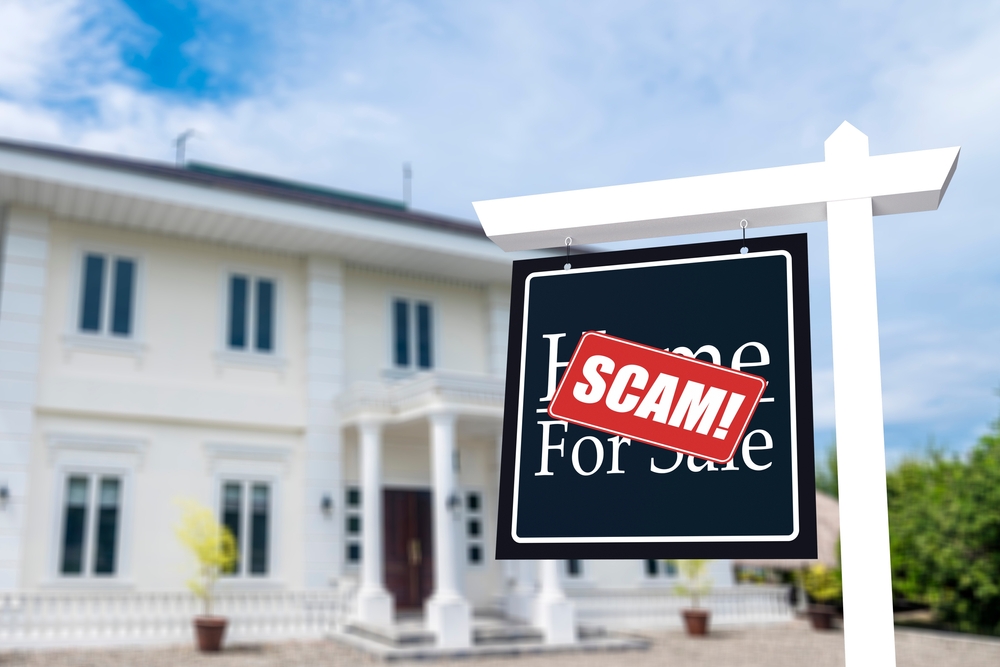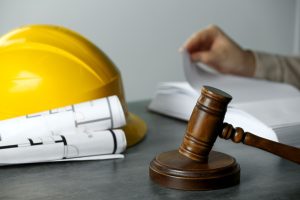Real estate transactions involve significant financial investment and trust. Unfortunately, the high stakes, particularly in markets like New York City, can create fertile ground for fraud and misrepresentation – intentional acts of deception designed to cheat buyers, sellers, owners, or lenders. From sellers concealing major property defects to sophisticated deed theft scams targeting vulnerable homeowners, these illicit activities can cause devastating financial and emotional harm. Understanding the various forms of real estate fraud and the legal protections available under New York law is crucial. Figeroux & Associates, located at 26 Court Street, Suite 701, Brooklyn, NY 11242, is dedicated to fighting for victims of real estate fraud and defending those wrongfully accused. Contact the firm at 855-768-8845 or visit www.askthelawyer.us for experienced legal counsel. This analysis examines common types of real estate fraud and misrepresentation in NYS and NYC.
The Elements of Fraud Under New York Law
Generally, to establish a claim for fraud or intentional misrepresentation in New York, a plaintiff must prove:
- A material misrepresentation of fact (or, in some cases, concealment/omission when there is a duty to speak).
- Knowledge by the defendant that the statement was false (scienter) or reckless disregard for its truth.
- Intent to induce the plaintiff to rely on the misrepresentation.
- Justifiable reliance by the plaintiff on the misrepresentation.
- Resulting damages suffered by the plaintiff.
Failure to Disclose Property Defects: Navigating “Caveat Emptor”
Historically, New York followed the doctrine of “caveat emptor” (let the buyer beware) in real estate sales. This meant sellers generally had no duty to disclose known property defects; the burden was on the buyer to conduct thorough inspections. However, this doctrine is not absolute, and sellers can be held liable in certain situations:
- Active Concealment: If a seller takes affirmative steps to hide a known material defect (e.g., constructing false walls to hide foundation cracks, painting over severe water damage just before showing), this constitutes actionable fraud. Mere silence is typically not enough, but actions intended to thwart a buyer’s inspection efforts can create liability.
- Affirmative Misrepresentation: If a seller makes a direct false statement about the property’s condition (e.g., “the roof is brand new” when it’s 20 years old and leaking), they can be sued for fraud if the buyer justifiably relies on the statement.
- Fiduciary Duty: If a special relationship of trust exists between the parties (rare in typical arm’s-length transactions, but possible), a duty to disclose may arise.
- Property Condition Disclosure Act (PCDA – RPL Article 14): This law significantly impacts residential sales (1-4 family homes). As amended effective March 20, 2024, sellers must provide buyers with a detailed Property Condition Disclosure Statement (PCDS) before the buyer signs a binding contract. The prior option to give a $500 credit instead of the statement has been eliminated. While the PCDS itself is not a warranty, a seller who knowingly provides false or incomplete information on the form may be liable for damages based on fraud or active concealment theories. The PCDS now includes specific questions about flood history and risks.
Litigation often centers on whether a defect was known to the seller, whether it was material, and whether the seller’s conduct rose to the level of active concealment or fraudulent misrepresentation, or involved knowingly false statements on the PCDS.
Misrepresentation of Investment Potential
In commercial or investment property sales, fraud can occur if the seller intentionally misrepresents key financial information, such as existing rental income, operating expenses, lease terms, tenant stability, or zoning potential, to induce a higher purchase price. Buyers relying on such false information to their detriment may have a claim for fraud.
Deed Theft and Fraudulent Transfers
One particularly egregious form of fraud is deed theft. This often targets elderly or financially vulnerable homeowners. Scammers may use deception, forgery, or coercion to trick owners into signing documents that transfer ownership of their property, sometimes under the guise of helping them avoid foreclosure or get a loan.
- Forged Deeds: A deed with a forged signature is void ab initio (void from the beginning) under New York law. It conveys no title whatsoever, even if subsequently recorded or relied upon by innocent third parties or lenders. An owner whose signature was forged can bring an action (e.g., a quiet title action under RPAPL Art. 15) to have the deed declared void and recover their property.
- Fraudulently Induced Deeds: If an owner is tricked into signing a real deed through deception (fraud in the inducement), the deed is voidable, not automatically void. This means the owner can sue to rescind the transfer, but if the fraudulent grantee transferred the property to an innocent bona fide purchaser for value before the owner sued, the innocent purchaser’s title might be protected.
- Legal Recourse: Victims can sue to quiet title, cancel the fraudulent deed, and seek damages. Criminal prosecution is also possible, and NYC District Attorney’s offices have units focused on these crimes. Proposed state legislation aims to strengthen protections, potentially allowing stays of related eviction or foreclosure proceedings during fraud investigations.
Foreclosure “Rescue” Scams & HETPA
Homeowners facing foreclosure are prime targets for scams. Fraudsters may charge large upfront fees for modification assistance they never provide, or worse, trick owners into signing over their deeds with false promises of saving the home or providing refinancing.
New York’s Home Equity Theft Prevention Act (HETPA – RPL § 265-a) provides specific protections for homeowners in default or foreclosure who sell their homes to “equity purchasers,” especially if the sale includes a “reconveyance agreement” (a promise the homeowner can buy back the property). HETPA requires:
- Written contracts with specific terms in at least 12-point font.
- A five-business-day right for the homeowner to cancel the contract.
- Prohibitions against false or misleading statements by the equity purchaser.
- Requirements for the purchaser to verify the homeowner’s reasonable ability to afford any buy-back terms.
Violations of HETPA can render the contract voidable and entitle the homeowner to damages.
Appraisal and Mortgage Fraud
Fraud can also occur earlier in the transaction process. Inflated appraisals, where a property’s value is intentionally overstated, can be used to obtain improperly large mortgage loans. This often involves collusion between appraisers, mortgage brokers, sellers, or buyers and can lead to significant losses for lenders when borrowers default on loans exceeding the property’s true worth. This constitutes mortgage fraud, which carries civil and potential criminal consequences.
Real Estate Investment Fraud
Beyond transactional fraud, real estate can be used as a lure in broader investment schemes, such as Ponzi schemes where returns for early investors are paid using funds from newer investors, rather than actual profits from property investments. These schemes often promise unrealistically high or guaranteed returns. Such activities fall under general fraud laws and New York’s powerful anti-fraud statute, the Martin Act (General Business Law Art. 23-A), which grants the NY Attorney General broad authority to investigate and prosecute securities fraud, including fraud related to real estate investments like syndications, co-ops, and condos.
Legal Remedies and the Role of Counsel
Victims of real estate fraud have several potential legal remedies:
- Rescission: Undoing the fraudulent transaction and restoring the parties to their prior positions.
- Monetary Damages: Recovering financial losses caused by the fraud, potentially including punitive damages in cases of egregious misconduct.
- Quiet Title/Declaratory Judgment: Obtaining a court order confirming rightful ownership and invalidating fraudulent deeds or claims.
- Constructive Trust: A court remedy forcing a party who wrongfully acquired property to hold it in trust for the rightful owner.
Combating real estate fraud requires diligence—thorough inspections, independent appraisals, careful review of all documents, and title searches. It also requires experienced legal counsel. Figeroux & Associates assists clients by investigating suspected fraud, advising on disclosure obligations under the PCDA and HETPA, pursuing claims to recover property or damages, and defending individuals or businesses against fraud allegations. The statute of limitations for fraud in New York is generally the greater of six years from the fraud or two years from when it was reasonably discoverable (CPLR § 213(8)), making prompt action essential.
Conclusion
Real estate fraud and misrepresentation pose serious threats to property owners, buyers, investors, and lenders in New York. From concealed defects and deed theft targeting vulnerable homeowners to complex investment schemes, the potential for deception is significant, particularly given NYC’s high property values. New York law provides important protections, including disclosure requirements under the PCDA, safeguards against equity theft under HETPA, and remedies to void fraudulent transactions. However, navigating these complex legal issues requires vigilance and expert legal guidance. Figeroux & Associates (855-768-8845 | www.askthelawyer.us) provides the necessary experience and dedication to combat real estate fraud and protect the rights of their clients in NYS and NYC.
Click Here to Schedule a Consultation with Figeroux & Associates Today!



